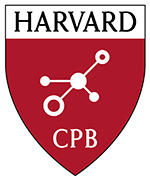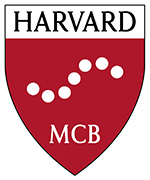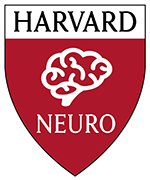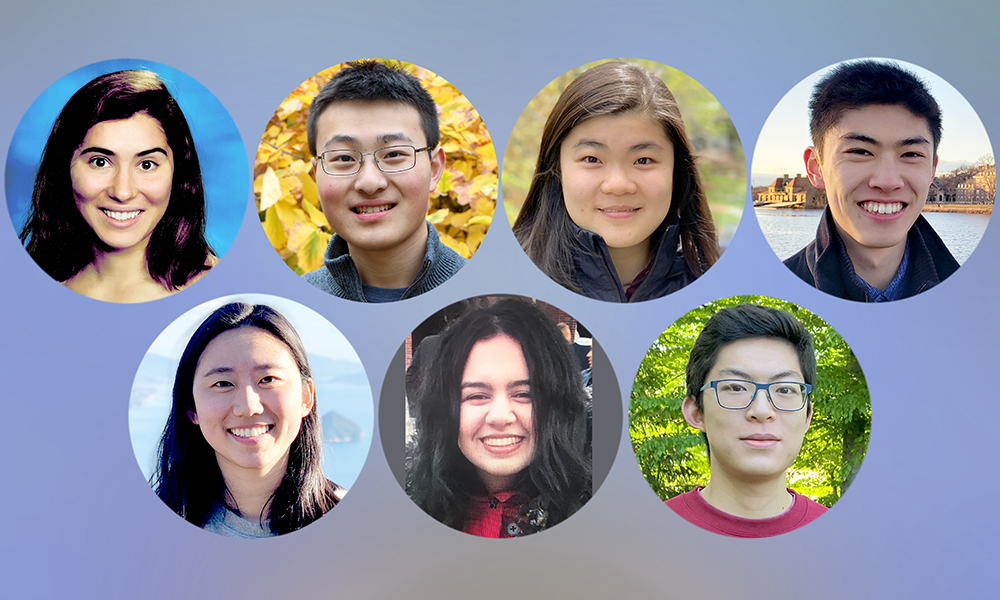Seven seniors from concentrations administered by the MCB department—Clara Cousins (MCB and Computer Science ‘20), Michael Gao (CPB ‘20), Tessa Han (MCB and Statistics ‘20), Spencer Kim (Neuro ‘20), Irene Lu (MCB ‘20), Sally Nijim (CPB ‘20), and Alexander Ren (Neuro ‘20)—have been elected to the prestigious Phi Beta Kappa (PBK) honor society.
The email notifying them of their PBK induction arrived just moments after the university-wide virtual commencement ceremony. “It was a nice surprise and an honor to receive the email about joining PBK on commencement day,” Lu says. “I was so focused on all the various graduation videos that I could barely believe that there was more to celebrate.”
“Learning about my induction into PBK was a sweet conclusion to Commencement week,” Ren agrees. “I was definitely surprised and very happy…but, as with the rest of this senior spring, I was also a bit sad that we wouldn’t be able to do the longstanding in-person exercises.”
The next day, the Harvard chapter of PBK held a virtual induction ceremony over a Zoom call. “The faculty officers explained the history of PBK and took turns reading our names, which gave it a nice ceremonial feel even though it was held over Zoom,” Gao says.
“With a lot of turmoil at Harvard and beyond, it is nice to be reminded of some bigger core values and long-term goals of higher education,” Cousins says, adding that she is honored to represent Harvard in PBK.
As newly-minted members of the honor society, these seniors are now part of a tradition of honoring academic excellence in the liberal arts that stretches back to 1776 and a network of students and alumni that crisscrosses the country.
Each year, the Harvard chapter of PBK, called Alpha-Iota, inducts 48 seniors in the fall, 24 juniors in the spring, and several more graduating seniors around commencement time. Candidates for induction are chosen based on their GPAs and recommendations from faculty with an emphasis on inducting students who demonstrate exceptional academic breadth.
Many of the new inductees have deep interests in health, mathematics, computer science, and the humanities, as well as biology.
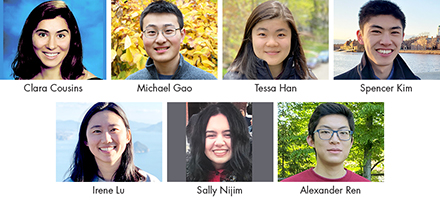
“Academically I’m interested in applying computational methods to gain insight on complex biological problems,” Cousins says. “I believe that huge progress can be made by integrating different perspectives and methods.” She’s currently pursuing these interests by working on computational biology projects for MIT and Dana Farber.
Lu says that becoming an MCB concentrator allowed her to develop a theoretical grounding for her interest in healthcare and business. “I eventually decided to concentrate in MCB because of the breadth of classes it covers in the sciences — I thought it would prepare me well to understand and analyze the current trends and discoveries in healthcare,” she says. “I am also very interested in the intersection of healthcare and business, so I have enjoyed taking economics classes as well as cross-registering at MIT and HLS to learn more about finance.” This fall, Lu will move to New York to work in finance, but she plans to continue pursuing her interest in healthcare.
Kim, who will work as a neurology research assistant at MGH before continuing on to medical school, says that the Neuroscience concentration has also given him a valuable opportunity to learn about a variety of fields. “The Mind, Brain, Behavior track of the Neuroscience concentration allowed me to study the brain from a broader range of scientific approaches while also giving me the opportunity to meet and learn from incredible professors and students in other academic disciplines,” he says.
“To younger students, I’d recommend taking time in college to explore all your interests, whatever they are, and to not be afraid to take risks personally and academically,” says Gao, who will spend next year conducting research and applying to grad school programs. “I’d also encourage them to try to make the most of whatever time they get on campus, whenever that’s a possibility again. It’s something we’ve really all taken for granted.”
Although these seniors hail from three different concentrations, they all cite the broader MCB community as a key source of support.
“My college experience has really revolved around all the great people I’ve met, and so many of them are in this community,” says Gao. “I certainly plan to stop by once it’s safe to do so again!”
“I am deeply grateful to the MCB community,” says Han. “The exemplary teaching, rigorous pursuit of scholarship, and exceptional guidance and mentoring played a pivotal role in these formative years. The award is recognition of this collective community that steadfastly supported and nurtured me throughout the program.”
“I would really like to thank Dominic Mao, Irina Cashen, Rachelle Gaudet, and the rest of the CPB-MCB community of students and faculty,” Nijim says. “When I joined the CPB concentration based on my academic interests, I didn’t realize at the time that I would gain another family with some of the kindest, most inspiring, and most supportive members. I’m grateful that I had the chance to be inspired by everyone I met there!”
Lu agrees, saying, “The MCB community has truly been so supportive during my time here. It is so special to have been part of a concentration that cares about each of its members.”
“I would like to thank all of my professors and classmates for making the past four years of
learning so fun and rewarding,” Kim says. I am especially grateful for the guidance and mentorship of Dr. Venkatesh Murthy, whose laboratory I worked in for the past two years. I would absolutely encourage other students to check out the Neuroscience concentration or even just take a few Neuro classes for fun!”
Though these seniors are graduating and applying to graduate and medical schools at an unusual time, they are determined to make meaningful contributions in spaces around the world.
“Given recent events around the country, I think we should acknowledge the diversity of our MCB community, but also recognize that we must continue to promote the inclusion and advancement of Black scientists,” Ren adds. “Scientific progress results from the congregation and interaction of diverse perspectives in an effort to answer fundamental questions about nature. Through education, empathy, and activism, we can all learn to confront racism in our daily lives and provide support for underrepresented communities.”
by Diana Crow


